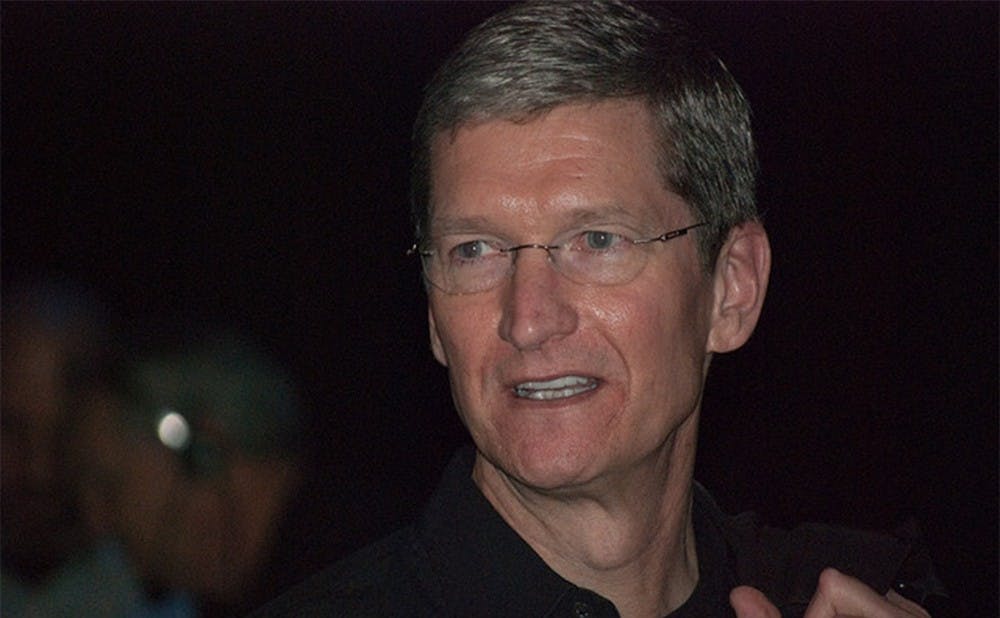The clash between Apple and the FBI about access to encrypted information on an iPhone involved in the San Bernardino shooting could have lasting effects for the technology industry, Duke experts said.
In February, Apple CEO Tim Cook, Fuqua ’88, wrote a letter on Apple’s website saying the company would contest an order from a U.S. magistrate to assist the government in unlocking the iPhone of San Bernadino shooter Syed Rizwan Farook. A court hearing on the issue, originally scheduled for Tuesday, was postponed after the Justice Department said Monday it might not need Apple’s help in unlocking the phone.
“If the FBI wins, I believe it means that even the richest and most powerful companies must yield to the rule of law as determined by the courts,” wrote Charles Dunlap, professor of the practice of law and executive director of the Center on Law, Ethics and National Security, in an email.
Dunlap noted that although there is not necessarily anything wrong with a company appealing a court order, his sense is that what technology companies want is to be able to sell devices that would “bar law enforcement or the courts from getting information from them under any circumstances.”
“In my view, a society needs to balance security and other legitimate interests, including commercial ones,” Dunlap wrote. “But I think an absolute bar as the tech companies appear to want would tilt that balance too much towards corporate profits, and would leave too many in our society vulnerable to terrorists and criminal exploitation. Most people simply cannot afford the layers of security that Silicon Valley billionaires can buy.”
The FBI’s court order to force Apple to create a “backdoor” into the phone of the shooter in the December 2015 attack—which left 14 dead and 22 seriously injured—raised concerns about balancing national security with consumers’ privacy.
In his open letter, Cook stated that if Apple was forced to develop the technology to hack into the phone, then “the technique could be used over and over again” to hack into any active phone.
“The United States government has demanded that Apple take an unprecedented step which threatens the security of our customers,” he wrote. “We oppose this order which has implications far beyond the legal case at hand.”
Cook did not respond to The Chronicle’s request for comment.
Salman Azhar, visiting associate professor and entrepreneur in residence, noted that the security of technological platforms are what make them desirable for customers.
“For example, even Gmail, if it was easy for people to break into it, consumers would stop using it and start using other email products,” Azhar said.
Azhar said that a mobile phone in particular contains a lot of personal information, so companies would be especially worried about them being broken into. He added that Apple’s motives for opposing the FBI are likely self-interested.
“Some person who has a choice between buying an Android or iPhone, if they know that with Android, their information is more secure would opt for an Android device as opposed to an iPhone... so I think there is a business aspect to it,” Azhar noted.
The case may set up a precedent for other tech companies, he said, noting that if Apple lost the case then companies like Google would also likely be forced to change their security protocols.
Dunlap, however, warned that companies can go too far potentially compromising national security—noting he thinks Americans care more about safety than corporate protections for companies like Apple.
“I really believe that most people would opt for security, provided the courts oversee the process to ensure the constitution is scrupulously observed,” Dunlap wrote.
Get The Chronicle straight to your inbox
Signup for our weekly newsletter. Cancel at any time.

